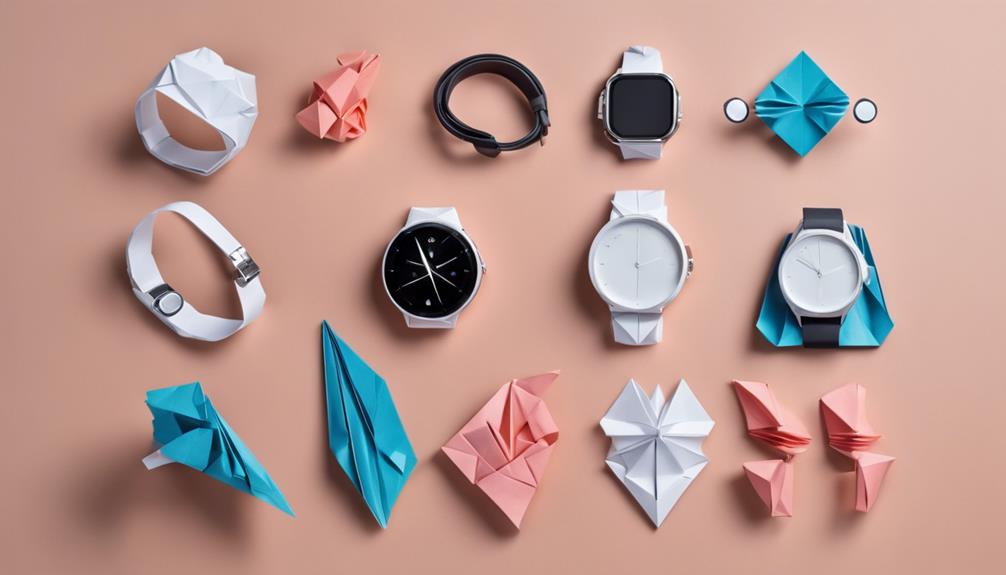Breaking free from materialism means shifting your focus from things to meaningful experiences. Start by decluttering your space; clear out items that no longer serve you. Reflect on what triggers your desire for new possessions and limit exposure to those influences, like social media. Practicing gratitude can help you appreciate what you already have and foster contentment. Prioritize adventures and connections over acquiring stuff. Build a supportive community around you to share goals and tips. Embrace a lifestyle that values simplicity and relationships. Keep going, and you'll discover more ways to create a fulfilling, material-free life.
Understanding Materialism
Understanding materialism begins with recognizing your preoccupation with possessions and how it affects your well-being. You might find that the more you acquire, the less satisfied you feel.
Research shows that materialistic tendencies often lead to anxiety, stress, and a pervasive sense of dissatisfaction. Society pressures you to display wealth, making it easy to lose sight of what truly matters—meaningful relationships and experiences.
The psychological impact of materialism can distract you from genuine happiness, leaving you in a relentless pursuit of more. Acknowledging this cycle is the first step toward change.
Letting Go and Decluttering
Letting go of unnecessary possessions can be liberating, helping you discover what truly matters in your life. Decluttering isn't just about tidying up; it's a path to freedom.
Here are four effective strategies to get started:
- Start Small: Tackle one drawer or area at a time to avoid feeling overwhelmed.
- Set Goals: Define what you want to achieve, whether it's a clearer space or a specific number of items to donate.
- Use the 30-Day Rule: If you haven't used something in the last month, consider letting it go.
- Dispose Responsibly: Donate or recycle items, ensuring they find new life rather than ending up in a landfill.
Embrace the process, and you'll find clarity and peace.
Identifying Triggers for Materialism

As you embrace decluttering, it's important to recognize the triggers that drive your materialistic tendencies. Start by reflecting on situations that prompt you to desire new items.
Is it social media showcasing idealized lifestyles? Maybe it's the pressure from friends or family to keep up with material possessions. Identifying these influences helps you make conscious choices.
Keep a shopping list to curb impulsive buys and delay purchases to assess necessity. Engage in fulfilling activities that replace the urge to shop, such as hobbies or exercise.
Talk to trusted friends about your motivations; their insights may clarify your triggers. By understanding these factors, you can take proactive steps toward a more intentional, less materialistic life.
Practicing Gratitude
Practicing gratitude can greatly shift your focus away from material desires and enhance your overall happiness. By acknowledging what you already have, you reduce the urge to seek more possessions.
Here are some effective ways to incorporate gratitude into your daily life:
- Keep a Gratitude Journal: Write down three things you're grateful for each day.
- Practice Mindfulness: Spend a few moments each day reflecting on your blessings.
- Express Appreciation: Tell friends and family what they mean to you.
- Limit Exposure to Advertising: Less exposure can help you appreciate what you already own.
Embracing gratitude not only fosters contentment but also helps you make more mindful choices about consumption.
Focus on Experiences

Focusing on experiences rather than possessions can lead to deeper connections and lasting happiness in your life. When you invest in activities like traveling, attending concerts, or sharing meals with friends, you create memories that enrich your existence. These moments foster relationships and provide a sense of belonging, which material goods simply can't replicate.
Additionally, experiences often promote personal growth, pushing you out of your comfort zone and helping you learn new skills. Instead of chasing the latest gadgets, consider planning a weekend getaway or a fun class with loved ones.
You'll find that these shared adventures offer fulfillment that lasts far longer than any item you could buy. Prioritizing experiences can transform your perspective and enhance your overall well-being.
Creating Functional Spaces
Creating functional spaces in your home allows you to enjoy the experiences that matter most without the distraction of clutter. By designing your living areas for practicality, you can enhance both comfort and functionality.
Here are four tips to get you started:
- Invest in multi-purpose furniture that adapts to your needs, saving space and money.
- Utilize efficient storage solutions like baskets and shelves to keep items organized and accessible.
- Minimize decor by choosing a few meaningful pieces, allowing for a more open and calming environment.
- Regularly reassess your belongings to guarantee your space remains clutter-free and functional.
These strategies can help you create spaces that foster tranquility and promote a fulfilling lifestyle.
Long-term Lifestyle Changes

Making long-term lifestyle changes requires commitment and a willingness to reflect on your values and priorities.
Start by setting realistic goals and breaking them into achievable milestones. Regularly assess what truly matters to you, and adjust your strategies as your needs evolve.
Stay informed by reading about minimalism and simplicity, and seek inspiration from others who share your vision.
Embrace flexibility; life changes often demand new approaches.
Focus on engaging in hobbies and sharing resources, like borrowing or trading, to reduce your reliance on material goods. This not only fosters a sense of community but also enriches your experiences.
With patience and persistence, you can cultivate a lifestyle that prioritizes meaningful connections over possessions.
Building a Supportive Community
Building a supportive community around your minimalist goals can enhance your journey toward a less materialistic lifestyle. When you connect with like-minded individuals, you create a network that encourages growth and accountability.
Here are four ways to build your community:
- Join local or online groups that focus on minimalism and shared values.
- Attend workshops or events that promote sustainable living and meaningful experiences.
- Engage in discussions with friends and family about your goals, inviting them to share theirs.
- Organize meetups or sharing sessions to exchange tips, resources, and experiences in decluttering and mindful consumption.
Frequently Asked Questions
How Can I Motivate Myself to Declutter Consistently?
To motivate yourself to declutter consistently, start small and set achievable goals. Celebrate your progress, create a routine, and remind yourself of the freedom and clarity a less cluttered space brings to your life.
What Are Some Signs That I'm Too Materialistic?
If you're feeling frantic about finances or fixated on fashion, you might be too materialistic. Notice if happiness hinges on possessions, or if you often compare yourself to others for worth or validation.
Can Materialism Affect Relationships With Others?
Yes, materialism can strain your relationships. When you prioritize possessions over people, you risk alienating loved ones, creating a sense of competition, and diminishing genuine connections, ultimately leading to dissatisfaction and loneliness in your life.
How Do I Cope With Societal Pressure to Buy More?
When the rubber meets the road, coping with societal pressure to buy more involves identifying your values. Focus on experiences over possessions, create shopping lists, and practice gratitude to counteract impulsive urges.
What Resources Are Available for Learning About Minimalism?
To learn about minimalism, you can explore books like "The Life-Changing Magic of Tidying Up," follow minimalism blogs, join online communities, or watch documentaries that inspire a simpler, more intentional lifestyle.
How Can I Break Free From Materialism Like Kieran Tompsett?
To break free from materialism like Kieran Tompsett, start by evaluating your relationship with possessions. Follow the motivational powerhouse’s journey towards minimalism by focusing on experiences over things, embracing gratitude, and practicing mindfulness. By shifting your mindset, you can untether yourself from the pitfalls of materialism and find true fulfillment.
Conclusion
When you choose experiences over possessions, you invite joy instead of anxiety.
Letting go of material clutter makes room for meaningful connections, transforming emptiness into fulfillment.
As you cultivate gratitude, you shift your focus from what you lack to what you cherish.
Embracing a simpler lifestyle fosters freedom rather than confinement, allowing you to thrive in a world that often misdefines happiness.
By prioritizing what truly matters, you break free from materialism and reclaim your joy for good.









